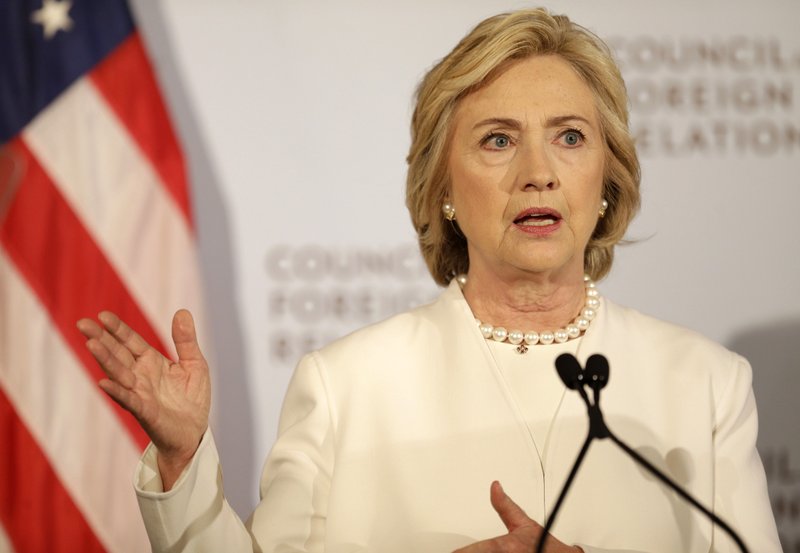NEW YORK -- Hillary Rodham Clinton vowed Thursday to keep U.S. troops out of Syria, saying in a foreign-policy address that she would resist sending forces to fight Islamic State militants even if there were an attack within the U.S.
RELATED ARTICLE
http://www.arkansas…">Sanders promotes plan for 'economic security'
Offering a detailed assessment of the conflict in Syria, the Democratic presidential candidate said the U.S. must lead the effort to fight the Islamic State, but she called on Arab nations to supply much of the military force on the ground.
During a question-and-answer session as part of a Council on Foreign Relations event, Clinton was asked if the pressure to send U.S. ground troops to Syria would be "unstoppable" if another terror attack were to occur in the U.S.
"It would certainly grow, but I think it would be a mistake," she said, noting her support for sending more U.S. special forces, empowering U.S. trainers in Iraq and using an air coalition in the region. "Right now we need to keep the pressure on the people on the ground and get them to change their priorities and work together.
"We cannot allow terrorists to intimidate us into abandoning our values and our humanitarian obligations," she said.
"We are in a contest of ideas against an ideology of hate, and we have to win," she said. "Let's be clear, though: Islam is not our adversary. Muslims are peaceful and tolerant people."
Speaking just before fellow candidate U.S. Sen. Bernie Sanders of Vermont was to address the conflict, Clinton urged Americans to overcome partisan fighting and rise above personal fear to combat the threat of jihadism around the globe.
"Turning away orphans, applying a religious test, discriminating against Muslims, slamming the door on every Syrian refugee, that is just not who we are. We are better than that," she said.
She also declared that the aftermath of the attacks in the French capital is "no time to be scoring political points."
While Clinton said she mostly supports President Barack Obama's efforts to combat Islamic State militants, she breaks with the administration's focus on ousting Syrian President Bashar Assad. That position that has stood in the way of greater military cooperation between the U.S. and Russia, she said.
Clinton reiterated her support for a no-fly zone over the northern region of Syria -- a step opposed by Obama -- saying it would help with conditions inside the country and pressure Assad to reach a political settlement in peace talks being brokered by Secretary of State John Kerry.
She urged Turkey and Saudi Arabia to redirect their attention from battling Kurdish forces and the conflict in Yemen to the fight against Islamic State militants. And she promised that her broader approach would not lessen the pressure on Iran to comply with the recently completed nuclear deal.
Clinton also urged Congress to pass "swiftly" an updated authorization to use military force against the militants.
Clinton's remarks were in contrast to those of many Republicans who have advocated a large-scale military mobilization, new measures to bar Syrian refugees from entering the U.S. and a congressional declaration of war.
Former Florida Gov. Jeb Bush on Wednesday called for the U.S. to "increase our presence on the ground," saying the number of Americans sent to the region should be "in line with what our military generals recommend, not politicians."
Information for this article was contributed by Jonathan Lemire, Lisa Lerer, Alan Fram and Ken Thomas of The Associated Press; and by Amy Chozick and David E. Sanger of The New York Times.
A Section on 11/20/2015


